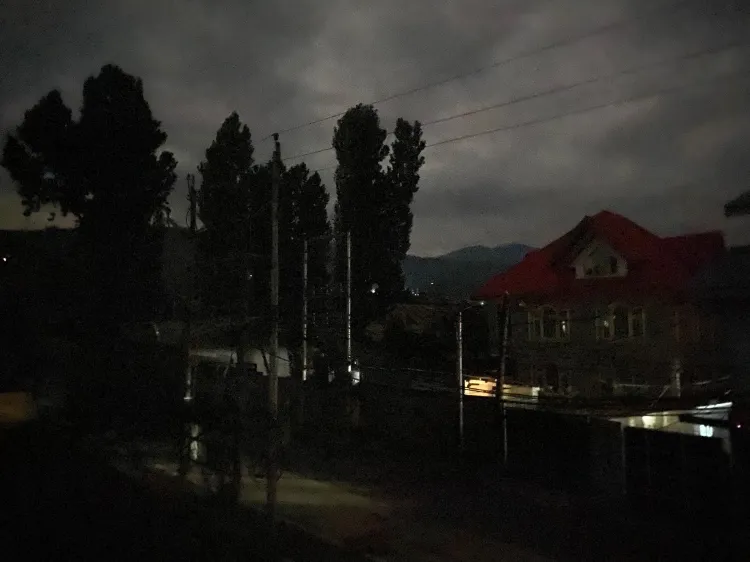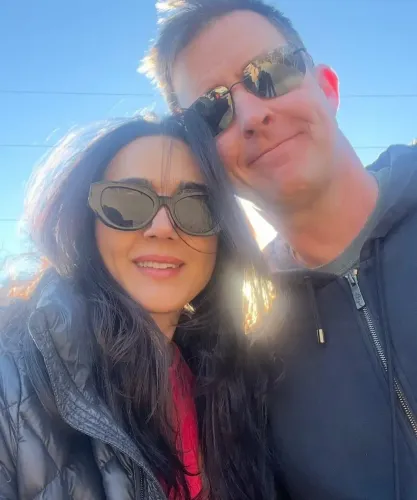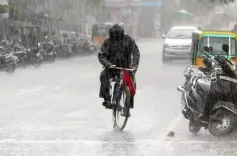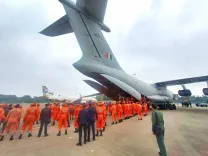How is India Responding to the Terror Attack Directed by Pakistan in Pahalgam?

Synopsis
Key Takeaways
- Global condemnation of terrorism strengthens India's stance.
- Military action reflects India's strategic response to threats.
- International support from leaders like Trump and Putin is crucial.
- Operation Sindoor showcases India's military capabilities.
- India's relationship with the US is pivotal in countering terrorism.
New Delhi, May 8 (NationPress) US President Donald Trump's clear condemnation of the terrorist attack that claimed innocent tourists in Pahalgam, along with a similar stance from President Vladimir Putin of Russia, undoubtedly bolstered India's position in its efforts to establish a long-term deterrent against Pakistan.
During India's preparatory phase, an element of surprise was preserved as the nation executed multiple 'Balakote-style' military strikes on nine terror bases and training facilities along the LoC and the Indo-Pak border in the early hours of May 7. This operation was part of India's strategy to target only terror establishments and avoid engaging with Pakistani military forces.
India has simultaneously asserted its right to pursue individuals like Hafiz Saeed and Masood Azhar, regardless of their potential sheltering by the Pakistani army.
Details of the operation were shared by Col Sofiya Qureshi and Wing Commander Vyomika Singh the next day, both of whom played key roles in planning the counter-terrorism initiative. The 'daughters' of India were prominently involved in avenging the 'widowhood' caused by terrorists in Pahalgam.
'Operation Sindoor' was an intelligence-driven initiative, executed with remarkable precision and coordination among the defense forces, under the direction of India's National Security Advisor Ajit Doval.
It is reassuring to recognize that geopolitically, the Indo-US relationship is founded on a strong basis, especially following President Trump's outright rejection of 'Islamic terror'. He swiftly announced visa restrictions for regions that promote such terrorism and identified a significant role for India in his new strategy to counter China.
India's enhanced status in the Quad was reflected in the joint statement following the Quad Foreign Ministers meeting in Washington on January 22 this year, reiterating their commitment to a 'free and open Indo-Pacific' that respects 'rule of law, democratic values, and territorial integrity'. The statement also highlighted the importance of the upcoming Quad summit to be hosted by India later this year.
In contrast to former US President Joe Biden, who seemed indifferent to the Pak-Afghan region's harboring of Islamic radical forces, President Trump's zero-tolerance approach to Islamic terror will draw his attention to this area, particularly given the implications of the strategic Sino-Pak alliance.
As the largest and oldest democracies, India and the US jointly lead the democratic world, which is threatened by faith-based terrorism and dictatorial regimes. A natural convergence exists between these two nations on geopolitical and strategic matters.
The support from Russia regarding the events in Pahalgam represents the international community's backing of India's steadfast stance against terrorism. It is noteworthy that Russia experienced an attack by ISIS-K on a concert hall near Moscow in March of the previous year, resulting in 135 fatalities and nearly 500 injuries.
Interestingly, President Trump's 'America First' policy in diplomacy, economics, and strategy was largely influenced by his acute awareness that China had intentionally adopted an economic route to becoming the second superpower. This awareness stems from the US encountering adverse trade balances with numerous countries and the ongoing 'war-like' conflicts across Europe, the Middle East, and South Asia.
During this term, the Trump Presidency is focused on administrative reforms through the Department of Government Efficiency (DOGE) under Elon Musk, aiming for cost-cutting measures, particularly concerning the elimination of funding for all Diversity, Equity and Inclusion (DEI) initiatives from the Biden Administration.
Indications suggest that the regime led by Prime Minister Narendra Modi is managing India's relations with the US in a manner that is diplomatically astute, internationally sound, and economically viable, without being swayed by narratives suggesting that India is merely playing second fiddle to the US or failing to respond adequately to Trump's immigration and trade policies.
Despite being labeled as 'unpredictable', President Trump possesses an uncanny recognition of the vital role that India's strategic and economic support plays in his 'Make America Great Again' (MAGA) campaign. Prime Minister Modi echoed this sentiment during his visit to the White House in February, subtly reminding Trump that India also strives for 'Make India Great Again' without allowing contradictions to emerge in Indo-US cooperation.
The terror attack executed by Lashkar-e-Taiba infiltrators, which resulted in the deaths of 26 Hindus on April 22 in Pahalgam, is rightly being compared to the 26/11 Mumbai attack by LeT. The Modi-led government has appropriately responded by granting defense forces a free hand in planning and executing retaliatory measures.
India has an obligation to systematically dismantle terrorist bases and eliminate their leadership while openly attributing the Pahalgam massacre to the involvement of the Pakistani army. This must be pursued with international backing, which Indian diplomacy is adept at achieving, despite China's pro-Pak stance.
Pakistan is unlikely to abandon its use of terrorism—motivated by faith—as a cost-effective instrument of state policy to inflict harm on India. Thus, India must establish a standing deterrent through cross-border strikes whenever necessary, anticipating that Pakistan, in its desperation, could escalate the conflict by targeting Indian military installations.
In conclusion, following the Pahalgam terror attack, it would be prudent to appoint a senior civilian with a background in national security and intelligence to oversee J&K. This individual should command the respect of the defense services, possess a deep understanding of the separatist and pro-Pak forces in this border state, and be professionally equipped to enhance local intelligence flows. Following the terror attack and India's retaliatory strikes, J&K has gained unprecedented strategic significance.
(The writer is a former Director of the Intelligence Bureau)









